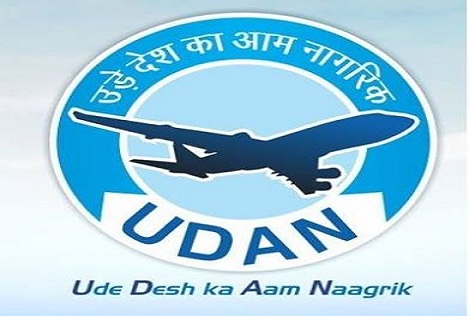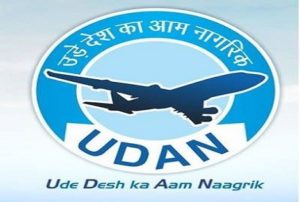The Ministry of Civil Aviation took a major step today towards making flying a reality for the small town common man. The Civil Aviation Minister Shri P Ashok Gajapathi Raju launched the Ministry’s much awaited Regional Connectivity Scheme “ UDAN (Ude Desh ka Aam Naagrik)” in New Delhi.
About Civil Aviation Ministry of India,
The Ministry of Civil Aviation of Government of India is the nodal Ministry responsible for the formulation of national policies and programmes for development and regulation of Civil Aviation and for devising and implementing schemes for the orderly growth and expansion of civil air transport.
- Its functions also extend to overseeing airport facilities, air traffic services and carriage of passengers and goods by air. The Ministry also administers implementation of the 1934 Aircraft Act and is administratively responsible for the Commission of Railways Safety.
- The ministry is under the charge of Pusapati Ashok Gajapati Raju, assisted by minister of state Dr. Mahesh Sharma.
- The Secretary is the head of the Ministry and is assisted by one Additional Secretary & Financial Adviser, three Joint Secretaries, seven officers of the level of Director / Deputy Secretary / Financial Controller and ten officers of the level of Under Secretary.
- It is located at Rajiv Gandhi Bhavan, Safdarjung Airport, New Delhi.
About UDAN Scheme :
This first-of-its-kind scheme globally will create affordable yet economically viable and profitable flights on regional routes so that flying becomes affordable to the common man even in small towns.
- The first flight under the scheme would be able to take off by January next year and the scheme had been prepared after a lot of stakeholder consultation and called for support from all players to make it a success.

- The scheme UDAN envisages providing connectivity to un-served and under-served airports of the country through revival of existing air-strips and airports. The scheme would be in operation for a period of 10 years.
- UDAN has a unique market-based model to develop regional connectivity. Interested airline and helicopter operators can start operations on hitherto un-connected routes by submitting proposals to the Implementing Agency.
- The operators could seek a Viability Gap Funding (VGF) apart from getting various concessions. All such route proposals would then be offered for competitive bidding through a reverse bidding mechanism and the route would be awarded to the participant quoting the lowest VGF per Seat.
- The operator submitting the original proposal would have the Right of First Refusal on matching the lowest bid in case his original bid is within 10% of the lowest bid.
- The successful bidder would then have exclusive rights to operate the route for a period of three years. Such support would be withdrawn after a three year period, as by that time, the route is expected to become self-sustainable.






